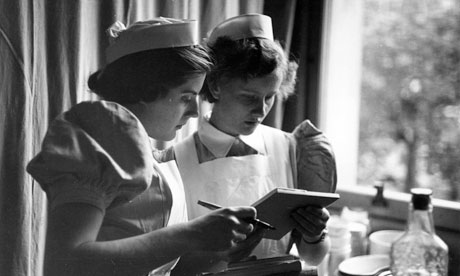'People will forgive you for being wrong, but they will never forgive you for being right - especially if events prove you right while proving them wrong.' Thomas Sowell
Search This Blog
Showing posts with label autonomy. Show all posts
Showing posts with label autonomy. Show all posts
Monday, 11 September 2023
Thursday, 2 December 2021
Thursday, 20 June 2019
Thursday, 21 February 2013
Creationist free schools are an abuse - ancient ignorance has no place in education Young minds are primed by nature to believe most of what adults tell them to believe. They should be treated with respect, not twisted into shapes that conform with dogma
A C Grayling in The Independent
An increasing concern about the current free school movement is that too many of those behind it have a religious agenda. Freedom of Information figures reported in The Independent this week show that 132 of the 517 applications to open free schools in the past couple of years have come from faith groups.
Creationists and fundamentalists of various stamps are eager to open schools so that they can proselytise the young, knowing that this is by far the chief way that religious belief survives in the world.
A single moment’s thought shows that the expression “faith school” is a contradiction: education should be about how to think, not what to think; it should be about learning, enquiry, testing evidence and arguments, not indoctrination of the young into having “faith” in one or other of the many ancient belief systems that constitute religion. The younger a child is, the more intellectually defenceless he is, and the easier it is to fill his head with beliefs from which it might cost him much, later in life, to free himself so that he can see the world truly and clearly.
It is not for nothing that the Jesuits say, “Give me the child until he is seven and I will give you the man.”
For note what “faith” means: it means believing without evidence or reason, and even in the face of contrary evidence; this intellectual irresponsibility is regarded as a religious virtue, as the story of Doubting Thomas is intended to illustrate.
There are, therefore, powerful reasons for saying that the government should require all free schools to be secular in the sense of neutral towards faith commitments. Children should not be subjected to indoctrination into religious beliefs, any more than they should be instructed in school to believe that astrology, magic, the occult or voodoo are true.
In being taught about religion (as opposed to being taught to believe religious dogmas), they will see for themselves the conflicting claims, the basis in ancient ignorance, and the too often baleful effects of religion on human lives and societies. Whether they come to believe in Shintoism or Christianity or Islam after that will at least be their own choice, based on an examination of the grounds for believing.
I and my colleagues at the New College of the Humanities have put in a bid to open a free school in Camden with a concentration in the arts and humanities. One stringent principle of its educational ethos is to be that pupils must be encouraged and equipped to think for themselves, to challenge, to ask questions, to have a very good case for committing themselves to any ideological viewpoint, whether political, religious or otherwise. That is the overwhelming responsibility of education.
If the phrase “faith school” makes any sort of sense, it must mean “schooling in a faith”. We have been lulled by the wishy-washy laissez-faire history of Church of England schools into thinking that religious-ethos schools are harmless affairs, with a bit of cod spirituality and morality thrown in at school assembly on some mornings of the week.
But the new faith school movement is far from harmless. Its objective is to capture minds and hearts for a sectarian outlook. Creationists and “intelligent design theorists” wish to combat science where it is easiest to do so: in very young heads which are primed by nature to believe most of what adult authorities tell them about the world.
In the past, Richard Dawkins and I have described religious indoctrination of small children as “child abuse”, and if one is being strictly literal in the use of these terms, so indeed it is. This seems fighting talk to those who are unaware what a cost the world pays in the divisions, conflicts and antipathies generated by religion, or the psychological burden of children and adults struggling with feelings of sin and inadequacy.
The argument that children need to be nourished spiritually and morally as well as educated in the theorems of arithmetic and the dates of history are right: but those who use this argument thinking that only religion provides these things are more wrong than they know. There are rich, deep, powerful traditions of thought and debate about life and how it can be best lived in the philosophy, literature and art of our world, which have no reference to religion, require no “leaps of faith”, and appeal to the clarity of reason and the innate warmth of the human heart as their basis.
Religion is the belief system of our remote ancestors who knew little about the universe, and made up stories to explain it to themselves. It is extraordinary that so many people still live by those stories, so manifestly inadequate as a resource for understanding the world and informing our moral lives. Education should not be narrowing minds into the antiquated moulds of those beliefs, but opening them so that by the bright light of enquiry they can seek and examine evidence for themselves.
A young mind is a beautiful opportunity: receptive, curious, quick to soak up information and techniques; it is something to be treated with utmost respect, not twisted into shapes that conform to antique dogmas, but given every chance to grow and discover. That is what a free school should aim for: an education in intellectual autonomy.
Professor Grayling is founder and Master of the New College of Humanities
Wednesday, 27 July 2011
Having cancer is an education, and this is what I have learned
Illness introduced me to a beautiful network of dependence – and a struggle for autonomy I can't win on my own

The discipline of nursing converts science into care. Photograph: Bert Hardy/Getty Images
Now entering my fifth year of living with multiple myeloma, a haematological cancer, I reflect back on a roller-coaster ride of symptoms, treatments and side effects. Whatever else this experience has been, it's been an education. But what exactly have I learned? To begin with, that any glib answer to the question misses the core of the experience – the complex dialectic of being ill, which is a social as well as physical condition. For me the experience has led to a heightened awareness of both our intricate dependence on others and our deep-seated need for independence. Sitting with my IV drip, I like to think about all the human labour and ingenuity that come together in this medical moment. I could dedicate the rest of my life to this exercise and still not complete the inventory. The first circle of dependence is immediate and sometimes intimate. Partners, friends, doctors, nurses, cleaners, porters.
Beyond them is a vast network of people I never see: pathologists, pharmacists, IT engineers, appointments managers. Everyone who has anything to do with maintaining the supply of medications or the functioning of equipment or getting me to and from hospital. Everyone who makes sure the lights are on and the building safe. The whole intricate ballet that is a functioning hospital. One misstep, and the whole breaks down, with potentially dire consequences. Beyond that, I'm dependent on a long history of scientific development to which individuals and institutions in many countries have contributed. From the British chemist Bence Jones identifying the protein associated with multiple myeloma in the 1840s to the pathologist and one-time film star Justine Wanger developing the IV drip in the 1930s; from the first experiments with chemotherapy (a byproduct of chemical warfare) in the 1940s, through the protracted struggle to master the art of toxicity (a dialectic of creation and destruction, if there ever was one), to the discovery of proteasome inhibitors in the 1990s and the creation of new "targeted therapies", like the one I'm currently receiving. Without innumerable advances in immunology, biochemistry, chemical engineering, statistics and metallurgy, to name but a few, I wouldn't be where I am now – in fact I wouldn't be at all. The drip flowing into my vein is drawn from a river with innumerable tributaries. It is an entirely rational, intelligible process but no less miraculous for that. And it's not just a story of science. Alongside that – and necessary to it – is the long history of the hospital, of the discipline of nursing, of the social developments that made it possible to convert raw science into practical care. I'm acutely conscious of how dependent I am on those who built and sustained the NHS – including, pre-eminently, generations of labour movement activists and socialists.
And as I sit with my IV drip, I'm mindful of those in government and business who would smash the delicate mechanism of the hospital and shatter the network of dependence that sustains me. I'm being kept alive by the contributions of so many currents of human labour, thought, struggle, desire, imagination. By the whole Enlightenment tradition, but not only that: by older traditions of care, solidarity, mutuality, of respect for human life and compassion for human suffering. The harnessing of science, technology and advanced forms of organisation and information to compassionate ends is by no means automatic. It leans on and is only made possible by the conflict-riddled history of ethical and political development. Beautiful as it is, this network of dependence is also frightening. Restrictions in capacity and mobility are hugely frustrating, and relying on others to supplement them is not a straightforward business – for patient or carer. I often feel I'm engaged in a never-ending battle for autonomy. I fight it out in relation to institutions, experts, medications, means of mobility, forms of diet.
Not to mention the vital effort to live a life beyond illness, to hold on to that kernel of freedom that makes you who you are. Paradoxically the struggle for autonomy is one you can't win on your own. You need allies, and part of being a carer is being an ally, not a nursemaid or controller. Independence is the stuff of life. But you can achieve it only through dependence on others, past and present. That's a truth driven home to the cancer patient but applicable to all of us. Illness is not an ideology-free zone.
Certainly not for the government, which aims to divide sufferers into acute cases deserving of support, and less acute ones that must be forced back into the labour market, where our only function will be to undercut wages. This is one reason why resistance to the attacks on benefits for the disabled ought to be a central plank of the anti-cuts movement. The crisis facing the ill is an extreme form of the crisis facing the majority of the populace. We don't want charity – the form of dependence that makes independence impossible – but rights, and the resources to exercise those rights. Speaking for myself, taking part in anti-cuts activity is some of the best therapy available, an unashamed acknowledgement of social dependence and at the same time a declaration of political-spiritual independence.
Subscribe to:
Comments (Atom)
